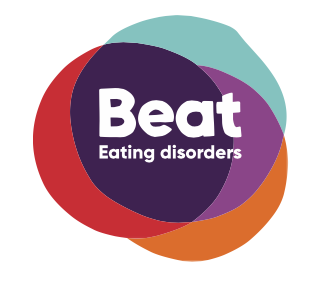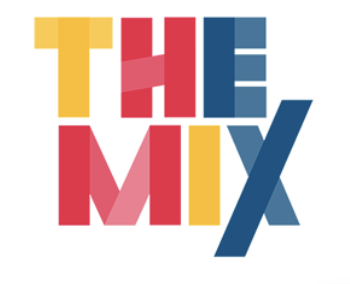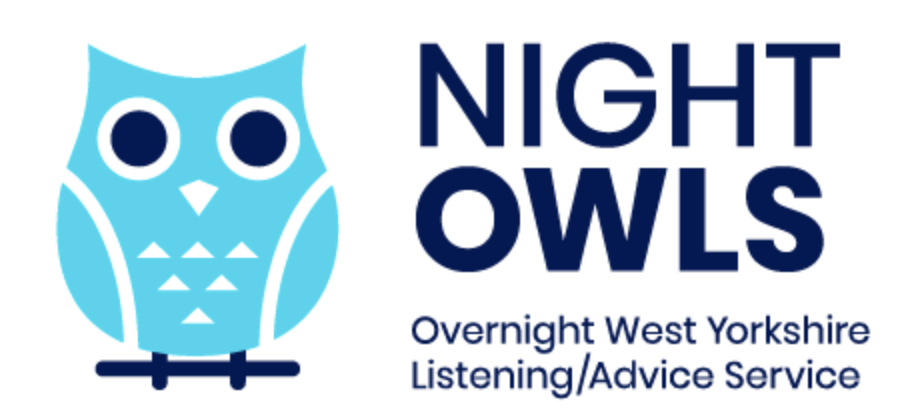Webpage written by Laraib, Ella and Mara, Year 12 in Leeds
Body Image
Body image refers to the way we see our physical selves, our bodies, and the thoughts and feelings that are caused by the way we see ourselves.
Having a healthy body image means being comfortable and knowing that there is more to us than just our physical appearance. We accept our bodies, even when they aren't exactly what we want, and still always appreciate it.
On the other hand, having an unhealthy body image means we tend to think that our body is unattractive. This 'body dissatisfaction' is within our own minds but can be caused by other factors such as social media or puberty. Sometimes, these factors make us forget that we matter more than just what we look like. It can lead to shame or anger associated with our bodies.
What are the 4 aspects of body image?
1. The way we see our bodies is perceptual body image. This is not always a correct representation of how we actually look.
2. The way we feel about our bodies is affective body image. Feelings may include happiness or disgust, but are often summarised as the amount of satisfaction or dissatisfaction we feel about our shape, weight and individual body parts.
3. The way we think about our bodies is cognitive body image. This can lead to obsession with body shape and weight.
4. The behaviours we engage in as a result of our body image is behavioural body image. When a person is dissatisfied with the way they look, they may isolate themselves or behave unhealthily in order to change their appearance.
What affects how we feel about our bodies?
Body image can change between positive and negative at different times. It is impacted by lots of factors which are both external (our home environment and social media), or internal (our mental attitude and how that affects our self image).
Things that affect body image include:
- Age. Body image develops at a young age, but dissatisfaction with body image may increase as we get older and our body changes.
- Puberty. Times when the body changes naturally, can be times when body dissatisfaction may increase.
- Personality. High achievers and perfectionists are more at risk of being dissatisfied with their bodies.
- Being teased or bullied. This can lead to an increased risk of developing poor body image, especially if being bullied or teased for our weight.
- Mental health problems. Suffering from depression or anxiety leads to a greater risk of negative body image.
- Poor role models. Being surrounded by poor role models in the media, who promote things like restrictive dieting and excessive exercise can lead to negative body image.
- Social media. Often seeing people on our feed with ‘perfect’ bodies leads to an unhealthy view of ourselves, as we may end up constantly comparing ourselves to them.
What are the symptoms of body dissatisfaction?
- Repetitive dieting behaviour. Fasting, counting calories, skipping meals, avoidance of certain foods like sugars or fat
- Excessive exercise patterns. Failing to have rest days because you’re scared of gaining weight
- Your appearance being the most important thing. The belief that others judge you based only on how you look, and that you cannot be successful, valued or loved if you are not ‘attractive’, ‘fit’, ‘built’ or ‘beautiful’
- Checking behaviours. Checking appearance in reflection, measuring body parts, pinching skin
- Spending a lot of time on your appearance, hair, make up or clothing
- Thinking or talking a lot about thinness, muscles or physique
- Constant negative talk about themselves and, or people with higher weight
- Constantly looking at yourself. Monitoring your own appearance and 'attractiveness'
- Objectifying yourself. When people see themselves as objects to be viewed and evaluated based upon appearance
- Comparing yourself to other people, generally negatively, to others you wish to copy
- Avoiding having to view your body. Avoiding situations where body image may cause anxiety such as swimming or socialising
Why is negative body image an issue?
If you have a negative body image you might:
- Think you look too 'fat' or 'skinny'
- Feel like you're not 'pretty' or muscular enough
- Believe your value as a person is determined by your looks
- Be obsessed with trying to change your body shape
Having a sustained unhealthy body image can make people vulnerable to developing an eating disorder. You may become fixated on changing your body shape, via exercise, supplements or food. It can be associated with illnesses that affect the mind and body such as body dysmorphic disorder (where a person becomes obsessed with something they think it wrong about their appearance), anorexia and binge eating.
It's beneficial to be aware of negative body image and actively attempt to develop a healthier body image.
How to improve your body image?
Having an unhealthy body image is bad for general well being and can be time consuming. Below are a few tips for improving your body image:
- Question media images. We constantly see images of bodies which are impossible to attain. Try not to compare yourself with them and remember that often what you see on TV and online are not true depictions of real people.
- Avoid any media, social media or websites that make you feel bad or suggest you need to change the way you look.
- Focus and appreciate the positive things your body can do.
- Look for similarities between your body and the bodies of other members of your family.
- Wear clothes that make you feel comfortable.
- Try positive self talk and avoid negative self talk.
- Eat foods that make you feel healthy. Don't obsess over counting calories.
- Set health goals rather than weight related goals.
- Avoid being critical of other people's bodies. Negative attitudes are contagious.
What is body image acceptance?
When a person is able to accept, appreciate and respect their body, they may be described as having a positive body image. This is not the same as body satisfaction. You can be dissatisfied with parts of your body, yet still be able to accept it.
A positive body image is associated with:
- Higher self esteem, which dictates how a person feels about themselves, can impact every aspect of life and contribute to happiness and wellbeing.
- Self acceptance, making a person more likely to feel comfortable and happy with the way they look and less likely to feel impacted by unrealistic images in the media and societal pressures to look a certain way.
- Having a healthy outlook and behaviours, as it is easier to lead a balanced lifestyle with healthier attitudes and practices relating to food and exercise when you are in tune with, and respond to, the needs of your body.
Frequently Asked Questions
What is body dissatisfaction?
Body dissatisfaction is where you have a negative view of yourself and your body. Body dissatisfaction is an internal emotion and thought process. It is influenced by external factors such as pressures to look a certain way, placing you at a higher risk of developing an eating disorder.
What are the long term health conditions associated with poor body image?
Mental health issues are the most common conditions that stem from poor body image. These include eating disorders and body dysmorphia. It’s important that you seek professional help to avoid developing these disorders.
Can body image affect older people as well?
Yes, definitely. Whilst it is often associated with younger people, older people can still experience negative body image and we have systems in place to help them too. Though our appearance and our relationship with our bodies change as we age, we do not stop valuing our bodies, and body image concerns can still remain.
How can bad body image become a problem which develops into an eating disorder?
When you are constantly looking at and often criticising your body, you can become obsessed with finding things that are 'wrong' with yourself. This can then become the way you think constantly. It can lead to body dysmorphia. For some people, this may cause eating disorders which are incredibly dangerous. This means that if we start to feel uncomfortable in our bodies we must speak to someone to get help.
I think I have body dysmorphia. What should I do?
Firstly, it's good that you've recognised that you're struggling, as this makes it a lot easier to get help. We recommend that you talk to someone, whether that be a parent, a trusted adult or your GP. You need to remember that you are not alone and healthcare professionals, and many people in your life are there to help and look after you.
Why do I worry about my body image?
Anyone can experience negative body image. No matter your gender, age or other factors but it is usually affected by the media, family members, friends and culture. Whether you consciously realise it or not, these things can encourage you to believe there is an ideal body and that yours isn't normal. It can cause you to expect unrealistic things about your body, which may make you feel unhappy and unsatisfied. It is important to be more conscious of how these factors influence your view of yourself.
Where can I get help?
If you are not satisfied with your body or are developing unhealthy eating or exercise habits, you can and should seek professional help. You can speak to your GP or a trusted teacher. There are counsellors and psychologists who have specialised knowledge and experience in body image who would be more than happy to help. Below are some helplines which are available to you:
 Beat is the UK’s eating disorder website. They offer support and information about eating disorders. Call their helpline on 0808 801 0677 (available Monday to Friday 1pm to 9pm, Saturday, Sunday and Bank Holidays 5pm to 9pm). They have a webchat service (One-to-One Web Chat). They also run a chat group for people under the age of 25 (Phoenix)
Beat is the UK’s eating disorder website. They offer support and information about eating disorders. Call their helpline on 0808 801 0677 (available Monday to Friday 1pm to 9pm, Saturday, Sunday and Bank Holidays 5pm to 9pm). They have a webchat service (One-to-One Web Chat). They also run a chat group for people under the age of 25 (Phoenix)
 The Mix is there for you whether you want a quick chat or more focused help. For young people with mental health, relationships, work life, school life, depression and any other issues all year round. Call 0808 808 4994 between 4pm and 11pm every day, email them, chat one to one online, sign up for free counselling or text THEMIX on 85258 for free 24 hours a day crisis support.
The Mix is there for you whether you want a quick chat or more focused help. For young people with mental health, relationships, work life, school life, depression and any other issues all year round. Call 0808 808 4994 between 4pm and 11pm every day, email them, chat one to one online, sign up for free counselling or text THEMIX on 85258 for free 24 hours a day crisis support.
![]() Young minds has information, help and advice about body image and other subjects
Young minds has information, help and advice about body image and other subjects
 MIND is a great website to get help for all sorts of mental health issues, including those associated with negative body image.
MIND is a great website to get help for all sorts of mental health issues, including those associated with negative body image.
 West Yorkshire Night OWLS is available 8pm to 8am every day for children, young people, parents and carers across West Yorkshire. Call free on 0800 1488 244 or text on 07984 376 950. Visit the website to use the online chat function www.wynightowls.org.uk
West Yorkshire Night OWLS is available 8pm to 8am every day for children, young people, parents and carers across West Yorkshire. Call free on 0800 1488 244 or text on 07984 376 950. Visit the website to use the online chat function www.wynightowls.org.uk
 Kooth is an online counselling and emotional well being platform for children and young people. 10 to 18 year olds can chat one to one with counsellors, access self help articles and connect with peers through live moderated forums.
Kooth is an online counselling and emotional well being platform for children and young people. 10 to 18 year olds can chat one to one with counsellors, access self help articles and connect with peers through live moderated forums.
![]() Text Chat Health Leeds 07520 619 750, Calderdale 07480 635297 or Bradford and Kirklees 07312 263032. Chat Health aim to reply to your text message within 24 hours 8.30am to 4pm, Mon to Fri.
Text Chat Health Leeds 07520 619 750, Calderdale 07480 635297 or Bradford and Kirklees 07312 263032. Chat Health aim to reply to your text message within 24 hours 8.30am to 4pm, Mon to Fri.



